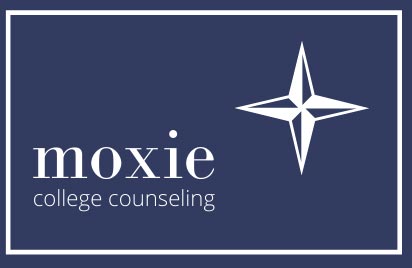While it may seem that the 2024-25 college application season is still far off, the fact is that it is not. There are a lot of elements to a college application that can be started now, before fall deadlines. The first is the Common App Personal Statement—an essay used by many schools when considering applicants for admission. Prompts for the new season have been posted already (they haven’t changed since last year). It is never too early to start working on this important essay!
Start Your Personal Statement Early
Writing essays during the spring and summer is a smart idea. The application process can become very hectic as deadlines approach, so having this important step under your belt early is encouraged. It is also important to mention that most applicants will have multiple essays to write, as many colleges have supplemental essay requirements. Those prompts are typically posted in the summer, but getting a jump on the main essay is a priority.
Essays and the personal statement help colleges learn more about who a student is. Admissions representatives want to see stories that give them a unique perspective into a student’s life while exhibiting the written communication skills needed to succeed in college. They should highlight character traits that show a prospective student’s strengths and priorities, and tell a story that is captivating.
What are the personal statement prompts and how do I choose which one to answer?
Following are the Common App Personal Statement prompts for 2024-25, with explanations on each to help you decide which one is best for you.
1. Some students have a background, identity, interest, or talent that is so meaningful they believe their application would be incomplete without it. If this sounds like you, then please share your story.
Perhaps the most popular choice amongst students, this prompt has been around for many years. It is not only asking you to consider a meaningful background, identity, interest, or talent—colleges will also want to know your perspective and how you believe this meaningful thing has shaped or changed who you are. Your response should focus specifically on YOU and how your story is unique to you, and not other students. How does your background or history set you apart from your peers?
2. The lessons we take from obstacles we encounter can be fundamental to later success. Recount a time when you faced a challenge, setback, or failure. How did it affect you, and what did you learn from the experience?
When writing about obstacles, it is important to focus more on the solutions and mindset than the problems themselves. Tell about the actions you took to overcome the obstacle/setback/failure. What were your mental and emotional responses? What skills did you use when facing the challenge? How did you grow as a person?
How you handle adversity will be of interest to colleges, as you will be faced with many situations in which you will need good problem-solving skills.
3. Reflect on a time when you questioned or challenged a belief or idea. What prompted your thinking? What was the outcome?
This is perhaps one of the most challenging Common Essay personal statement prompts. It is a great choice for students who like to reflect on abstract ideas, or who are passionate about their own beliefs and worldview. Students often recount times when they held opinions that were unpopular with family or peers.
There is also an opportunity to highlight your morals and values, and why they are so important to you. Here, you can state your own perspectives, show why you feel the way you do, and explain what drives your focus on the topics. In short, you can let your intellect and individuality shine.
4. Reflect on something that someone has done for you that has made you happy or thankful in a surprising way. How has this gratitude affected or motivated you?
In today’s world, gratitude has become a quality that people are encouraged to reflect on daily. This prompt, added during COVID, gives students the opportunity to explain what gratitude means to them, and how it directly impacts their lives. It encourages students to appreciate “the smaller things” that can inspire them.
Recounting random acts of kindness or something someone has said or done to restore your faith in humanity is great, but colleges are most interested in knowing about YOU. Be sure to focus on what you learned from the experience, and what it may have motivated you to do in your life (paying it forward, perhaps?) Be sure to include how you responded to this event, as that will give colleges valuable insight into you.
5. Discuss an accomplishment, event, or realization that sparked a period of personal growth and a new understanding of yourself or others.
While this personal statement prompt offers a great opportunity to showcase change or growth, it can be particularly valuable for those who may have had a “rough” start in high school and want to highlight a change in their focus, study habits, etc. that may have made them better students and/or humans. The accomplishment, event, or realization doesn’t have to be spectacular; smaller things can actually lead to more memorable moments.
Have you ever experienced an epiphany that changed the way you view the world? Did you accomplish something that excited or surprised you? Did you experience something new or was this a new perspective on something old? How did this transition change you? Answering this prompt effectively requires originality and good storytelling skills, but it is a great way to help the reader learn more about you.
6. Describe a topic, idea, or concept you find so engaging that it makes you lose all track of time. Why does it captivate you? What or who do you turn to when you want to learn more?
Here is an opportunity to describe something you are absolutely passionate about. Some students choose this prompt to elaborate on an activity or accomplishment mentioned elsewhere in their application. It can be a hobby, extracurricular activity, or something learned in class—the sky is the limit. The key is to be genuine and to describe your topic in concrete terms.
Make sure to discuss how this particular thing fits into your life concretely, and to explain things in layman’s terms. Remember that your first priority is to help your reader learn more about you, not to impress them with complicated, abstract ideas. (Many people think this prompt makes for a great supplemental essay, so if you choose a different prompt you might want to keep this one in mind for later.)
7. Share an essay on any topic of your choice. It can be one you’ve already written, one that responds to a different prompt, or one of your own design.
While this is often seen as a “catch-all” prompt that can be used when an essay doesn’t fit any of the previous prompts, it actually offers the flexibility to tell a story in a unique fashion. This takes a lot of pressure off of students to follow a specific prompt if there is a story to be told, but more importantly it still provides an opportunity to hone in on a specific character trait and/or growth opportunity that you want colleges to know about.
Get creative and stay focused—this prompt may provide a large umbrella for constructing an essay because it is so open-ended, but you want to avoid writing an essay that is too abstract, irrelevant, or overly broad.
Use Your Personal Statement to Highlight Who You Are
Essay writing doesn’t have to be as daunting a task as it may seem. The key is to start early and to be genuine. In the end, it doesn’t matter which personal statement prompt you choose. The most important thing is to highlight who you are and entice the reader to learn more.
Moxie College Counseling offers many valuable college counseling services, including essay guidance. Our professional team of essay specialists know what colleges are looking for. We can help you brainstorm and construct essays or a personal statement that you can be proud of. For more information, contact us.





